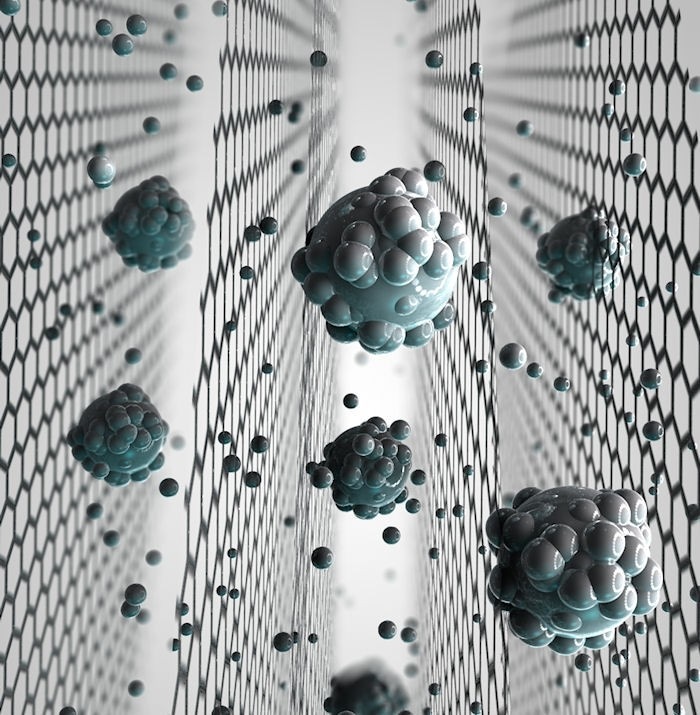Apr 4 2017
 (Credit: The University of Manchester)
(Credit: The University of Manchester)
There has been considerable attention placed on graphene-oxide membranes as potential candidates for new filtration technologies. Now, researchers at The University of Manchester have successfully created membranes that are capable of sieving common salts.
The new study from The University of Manchester shows the real-world potential of providing clean drinking water for the millions of people worldwide struggling to access suitable clean water sources. The research findings were published today in the Nature Nanotechnology journal.
In the past, graphene-oxide membranes have shown exciting potential for water filtration and gas separation.
Graphene-oxide membranes produced at the National Graphene Institute have already shown the potential of filtering out organic molecules, tiny nanoparticles, and even large salts. However, until now they could not be used for sieving common salts in desalination technologies, which need much smaller sieves.
In a previous study at The University of Manchester, it was discovered that if graphene-oxide membranes are immersed in water, they become slightly swollen and smaller salts begin to flow through the membrane along with water, but larger molecules or ions are blocked.
The Manchester-based team have now further developed these graphene-oxide membranes and discovered an approach to stop the membrane from swelling when exposed to water. By precisely controlling the membrane’s pore size, the membrane can sieve common salts out of salty water and render it safe to drink.
Climate change continues to impact water supplies of modern city; therefore wealthy countries are investing in desalination technologies. Major wealthy cities such as California are increasingly looking for alternative water solutions.
A ‘shell’ of water molecules forms around salts molecules when common salts are dissolved in water. This allows the small capillaries of the graphene-oxide membranes to prevent the salt from flowing along with the water. Water molecules flow unhindered through the membrane barrier and flow anomalously fast which is perfect for use of these membranes for desalination.
Realisation of scalable membranes with uniform pore size down to atomic scale is a significant step forward and will open new possibilities for improving the efficiency of desalination technology. This is the first clear-cut experiment in this regime. We also demonstrate that there are realistic possibilities to scale up the described approach and mass produce graphene-based membranes with required sieve sizes.
Professor Rahul Nair, The University of Manchester
Mr. Jijo Abraham and Dr. Vasu Siddeswara Kalangi were the joint-lead authors on the research paper: “The developed membranes are not only useful for desalination, but the atomic scale tunability of the pore size also opens new opportunity to fabricate membranes with on-demand filtration capable of filtering out ions according to their sizes.” said Mr. Abraham.
The UN predicts that by 2025 14% of the world’s population will face water scarcity. This technology has the potential to transform water filtration globally, particularly in countries which cannot meet the expense of large scale desalination plants.
It is anticipated that these graphene-oxide membrane systems can be produced on smaller scales, making this technology available to countries which do not have the financial infrastructure to fund large desalination plants without conceding the yield of fresh water produced.
Graphene: Membranes and their practical applications
(Credit: The University of Manchester)